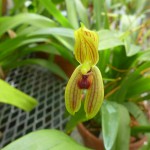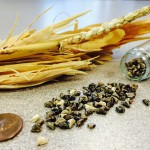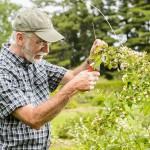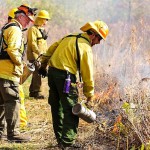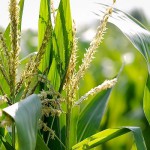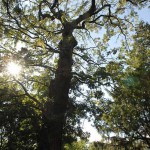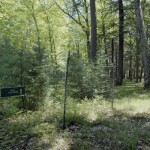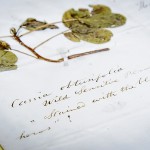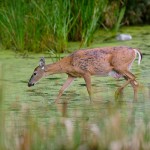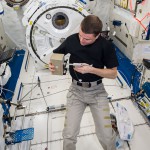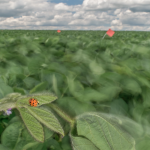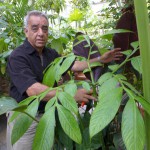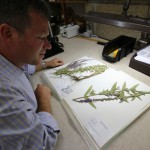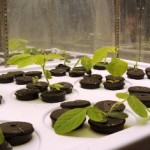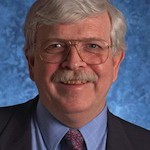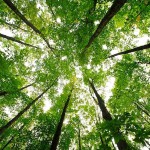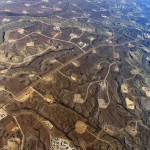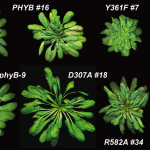Tag Plants
Family tree for orchids explains their astonishing variability
Orchids, a fantastically complicated and diverse group of flowering plants, have long blended the exotic with the beautiful. Most species live on trees, often in remote, tropical mountains. Their flowers can be strange - one even flowers underground, and many species deceive their pollinators into thinking they are good to eat.
UW study shows how a kernel got naked and corn became king
Ten thousand years ago, a golden grain got naked, brought people together and grew to become one of the top agricultural commodities on the planet.
New curators dig in at UW–Madison’s public gardens
Plants brought new curators to a pair of public gardens at the University of Wisconsin–Madison, but it’s people that Ben Futa and David Stevens are hoping to see more of.
Controlled prairie burns to take place in Lakeshore Nature Preserve
No cause for alarm: If citizens see smoke on the west end of the University of Wisconsin–Madison campus this weekend, it's part of nature's plan.
UW botanist harnesses the grid to illuminate crop growth
With help from the Center for High Throughput Computing (CHTC), botany Professor Edgar Spalding is applying this astronomical sense of scale to our understanding of corn. Spalding uses the HTC capabilities pioneered by Miron Livny, Morgridge Institute for Research chief technology officer, to quantify the incredibly complex process of corn growth from seed to vigorous seedling — not just one at a time, but over thousands of samples.
Last stand of the President’s Oak: A tree’s life remembered
After a tall and green life, Quercus macrocarpa, better known to friends as the President’s Oak, was taken down on Jan. 14, 2015, following a lengthy illness.
Deer account for almost half of long-term forest change, study finds
A study released this week has linked at least 40 percent of species changes in the forests of northern Wisconsin and Michigan over the past 60 years to the eating habits of white-tailed deer.
Flower links Civil War, natural history and ‘the blood of heroes’
On August 14, 1864, in a Union Army camp in Georgia, a captain from Wisconsin plucked a plant, pressed it onto a sheet of paper, wrote a letter describing the plant as "certainly the most interesting specimen I ever saw," and sent it with the plant to a scientist he called "Friend" in Wisconsin.
Ecologist/hunter talks deer, plants, hunters and balance
UW-Madison Professor of Botany Donald Waller is a pioneer in exploring the impact of deer in natural habitats. For more than 20 years, Waller - who counts himself among the state's deer hunters - has led research on the economic, health and environmental impacts of deer, including:
UW team’s plants return to Earth after growing in space
Researchers at Simon Gilroy's lab in the Department of Botany at the University of Wisconsin–Madison expect to greet a truck this afternoon that is carrying small containers holding more than 1,000 frozen plants that germinated and grew aboard the International Space Station.
Dwindling wind may tip predator-prey balance
Bent and tossed by the wind, a field of soybean plants presents a challenge for an Asian lady beetle on the hunt for aphids. But what if the air - and the soybeans - were still?
Campus botany gardener: transplant master
To hear master gardener Mo Fayyaz tell it, raising plants is straightforward: Get the right light, temperature, soil and water. Keep your eyes open. If one thing doesn’t work, try something else. And if everything fails, choose another plant. “You cannot just plant a rose in the shade and expect much,” he says. In 1984, Fayyaz secured his present job, director of UW–Madison’s Botany Garden and Greenhouse, and he began a long campaign to nurture and expand a garden that supports teaching and research in the biological sciences.
Project prepares collection for 21st-century challenge of invasive species
At the Wisconsin State Herbarium, director Kenneth Cameron is spearheading a new, three-year project to “digitize” images and data on aquatic and wetland plants, mollusks and fish from the Great Lakes basin. The $2.5 million grant from the National Science Foundation will also be disbursed to natural history museums at UW campuses in Stevens Point, Milwaukee and La Crosse, and in every other Great Lakes state. Together, these institutions expect to digitize 1.73 million specimens related to Great Lakes invasives.
A touching story: The ancient conversation between plants, fungi and bacteria
The mechanical force that a single fungal cell or bacterial colony exerts on a plant cell may seem vanishingly small, but it plays a heavy role in setting up some of the most fundamental symbiotic relationships in biology. In fact, it may not be too much of a stretch to say that plants may have never moved onto land without the ability to respond to the touch of beneficial fungi, according to a new study led by Jean-Michel Ané, a professor of agronomy at the University of Wisconsin–Madison.
Herbarium director receives award for telling the story of plants
Ken Cameron, director of the Wisconsin State Herbarium, received the Peter Raven Award from the American Society of Plant Taxonomists Aug. 5. Cameron, also a professor of botany at the University of Wisconsin–Madison, is a world expert on the orchid family.
New analysis links tree height to climate
What limits the height of trees? Is it the fraction of their photosynthetic energy they devote to productive new leaves? Or is it their ability to hoist water hundreds of feet into the air, supplying the green, solar-powered sugar factories in those leaves?
Fundamental plant chemicals trace back to bacteria
A fundamental chemical pathway that all plants use to create an essential amino acid needed by all animals to make proteins has now been traced to two groups of ancient bacteria. The pathway is also known for making hundreds of chemicals, including a compound that makes wood strong and the pigments that make red wine red.
Drilling in the dark: Biological impacts of fracking still largely unknown
As production of shale gas soars, the industry's effects on nature and wildlife remain largely unexplored, according to a study by a group of conservation biologists published in Frontiers in Ecology and the Environment on August 1.
Tricking plants to see the light may control the most important twitch on Earth
Copious corn growing in tiny backyard plots? Roses blooming in December? Thanks to technology that the University of Wisconsin–Madison’s Richard Vierstra has been developing for years, these things may soon be possible. And now, new findings out of the genetics professor’s lab promise to advance that technology even further.

